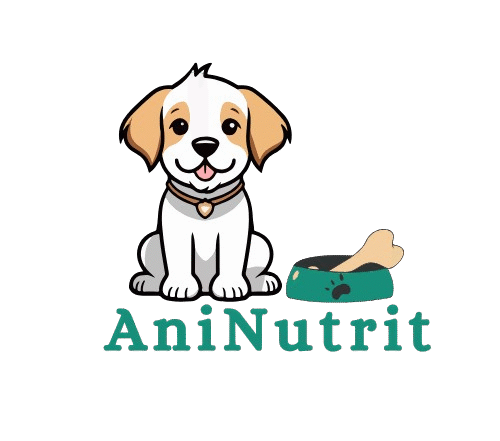Essentail nutrition supplements for labrador retriever including different types of supplements that should be helpfull for labrador . Labrador Retrievers are known for their loyalty, energy, and friendly nature. To maintain their vitality and long-term health, it’s important to provide not only a balanced diet but also carefully chosen nutrition vitamins supplements. In this guide, we’ll dive deep into the types of supplements Labradors need, including special considerations for breeding Labradors.

Importance of these vitamins for Labrador Retevers:
1. Why these vitamins Are Important for Labrador Retrievers
1.1 The Unique Nutritional Needs of Labradors
Although Labradors are generally healthy dogs, they are prone to certain conditions such as hip dysplasia, obesity, and skin issues. Therefore, supplements can help address these vulnerabilities by providing targeted nutrients that regular dog food might lack.
1.2 When Should use?
It’s wise to start vitamin nutrition early, particularly during puppyhood and adolescence, when bones and muscles are rapidly developing. However, always consult with your veterinarian before beginning any supplement regimen.
What are Key Supplements ?
2. Every Labrador Should Have these vitamins
2.1 Joint Support Supplements
Labradors are active dogs, but they often suffer from joint issues as they age. Glucosamine and chondroitin are two essential supplements that help maintain cartilage health and reduce inflammation. Consequently, adding these to your Labrador’s routine can extend their mobility well into their senior years.

2.2 Omega-3 Fatty Acids for Skin and Coat
Omega-3 fatty acids, typically derived from fish oil, play a crucial role in maintaining a glossy coat and healthy skin. In addition, they help manage inflammation, making them valuable for Labradors with allergies or skin sensitivities.
2.3 Probiotics for Digestive Health
Probiotics are beneficial bacteria that support digestion and enhance the immune system. Given that Labradors love to eat just about anything, ensuring a healthy gut can prevent frequent stomach upsets.
Supplements for Breeding:
3. Special Focus: Breeding Supplements for Labrador Retrievers
3.1 Why Breeding Dogs Require Special Nutrition
Breeding Labradors—whether male or female—have unique nutritional requirements. Female Labradors, especially during pregnancy and nursing, need enhanced vitamins, minerals, and calories to support both their own health and the health of their puppies. On the other hand, stud dogs also benefit from that promote reproductive vitality.

Supplements Distribution for using Labradors:
3.2 Recommended Breeding Supplements
Breeding supplements for Labradors often include:
Folic acid: Helps prevent congenital disabilities.
Calcium and phosphorus: Essential for fetal development and strong bones.
Vitamin E and selenium: Improve fertility and immune strength.
DHA (Docosahexaenoic Acid): Important for brain and eye development in puppies.
Incorporating these nutrients ensures a healthier pregnancy, stronger puppies, and a smoother recovery post-birth.
Guideline for Right Supplements:
4. How to Choose the Right Supplements
4.1 Quality Over Quantity
While there are countless brands on the market, not all are created equal. It’s critical to select high-quality, veterinary-approved products. Always look for supplements that are free from fillers, artificial colors, and preservatives.
4.2 Dosage and Administration
Since Labradors vary in size and activity levels, supplement dosages may differ. Furthermore, giving too much of a supplement can sometimes cause more harm than good. Follow the package instructions carefully, and whenever in doubt, consult your vet.
5. Monitoring and Adjusting Your Labrador’s Supplements
5.1 Watching for Results
After introducing, monitor your Labrador for improvements. For example, shinier coats, increased energy, or better mobility are good signs. However, if you notice any adverse effects like vomiting or lethargy, stop the supplement and seek veterinary advice.
5.2 Regular Veterinary Check-Ups
Regular vet visits allow professionals to adjust your dog’s diet and based on life stage, activity level, and any developing health issues
Supplements Chart for Labrador
7-Day Labrador Retriever Supplement Chart
| Day | Morning Supplements | Evening Supplements |
| Monday | – Glucosamine + Chondroitin (joint support) – Fish Oil (Omega-3) | Probiotic powder or chew (digestive health) |
| Tuesday | – Multivitamin (general wellness) – Fish Oil (Omega-3) | – Glucosamine + Chondroitin |
| Wednesday | – Fish Oil (Omega-3) – Antioxidant blend (Vitamin C & E | – Probiotic |
| Thursday | – Glucosamine + MSM (joint and inflammation) – Fish Oil (Omega-3) | – Multivitamin |
| Friday | – Probiotic – DHA supplement (brain & eye health) | – Fish Oil |
| Saturday | – Glucosamine + Chondroitin – Antioxidants | – Probiotic |
| Sunday | – Multivitamin – Fish Oil (Omega-3) | – “Rest Day” (no extra supplements, allow body balance) |
Notes For Use
Glucosamine + Chondroitin: Supports cartilage and reduces arthritis risks.
Fish Oil (Omega-3): Promotes heart, coat, and skin health.
Probiotics: Enhance gut flora, boosting digestion and immune function.
Multivitamin: Fills in minor dietary gaps for general health.
Antioxidants: Help protect cells against aging and diseases.
DHA Supplement: Especially useful for mental sharpness in adults and brain development in pups.
Quick Tips for using Supplements
Always give with meals to improve absorption and reduce stomach upset.
Adjust dosages based on your Labrador’s weight (average adult Lab: 25–36 kg / 55–80 lbs).
Hydration is key — ensure fresh water is always available.
Breeding females or aging dogs may require extra calcium, folic acid, or joint-specific formulas—adjust accordingly with your vet’s guidance.
Example Morning Routine:
Breakfast → Give Glucosamine tablet + Fish Oil capsule right after food.
Example Evening Routine:
Dinner → Mix probiotic powder into food or offer a probiotic chew as a treat.
Would you also like me to create a specialized version of this chart for:
Labrador puppies (2–12 months)
Senior Labradors (7+ years)
Breeding / pregnant Labradors?
I can quickly set that up too if you want
Conclusion
Providing the right supplements can greatly enhance your Labrador Retriever’s quality of life. From joint health to coat care and even breeding support, targeted nutrition ensures your Labrador remains healthy and happy for years to come. As always, a proactive partnership with your veterinarian will help tailor the perfect plan for your beloved pet.
FAQ
Q1: Can I give human supplements to my Labrador Retriever?
A: No, human supplements may contain ingredients harmful to dogs or incorrect dosages. Always use products specifically formulated for dogs.
Q2: How soon will I see results after starting supplements?
A: It usually takes about 4 to 6 weeks to see noticeable changes, though this can vary depending on the supplement type and the dog’s overall health.
Q3: Are supplements necessary if my Labrador eats premium dog food?
Sometimes, yes. While premium foods cover basic nutrition, specific issues like joint health, pregnancy, or senior support often require targeted supplementation.
Q4: What supplements are critical for breeding female Labradors?
A: Folic acid, DHA, calcium, and additional iron are critical to ensure the health of both the mother and her puppies.
Q5: How do I know if my Labrador is getting too many supplements?
A: Signs like diarrhea, lethargy, and loss of appetite may indicate an overdose. Always stick to recommended dosages and consult a vet for any concerns.


